Surrey Wildlife Trust is hoping to introduce local people to the wonders of wildlife by asking them to look for and record the presence of five key species including a mammal, a bird, a reptile, a plant and an insect which typify the range of Surrey’s wildlife - but could disappear from our lives if nature’s decline continues.
Help us record key species with five to find this summer
By going on a Surrey Species Search in your garden or a local community space such as a woodland, playing field or churchyard, you might spot the following creatures:
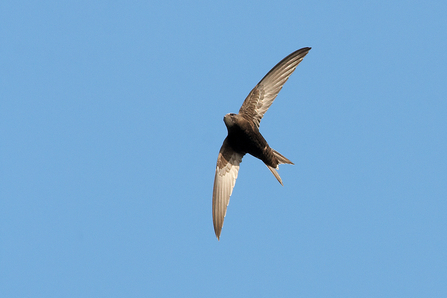
©Stefan Johansson
Swifts
A migratory insect-eating bird seen soaring above Surrey’s streets during Summer, this amazing creature sleeps on the wing, but numbers have fallen dramatically due to a changing climate, the decline in invertebrate numbers and the loss of its traditional under-the-eaves nest sites, caused by changes in the design of buildings.
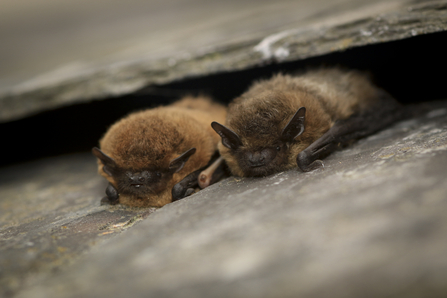
Tom Marshall
Bats
With 15 of the UK’s 18 species sighted in Surrey, these tiny nocturnal mammals are exciting to see in gardens and parks, where they eat as many as 3,000 flying insects every night. Bat numbers have declined due to the loss of mature trees, which they depend on to nest safely.
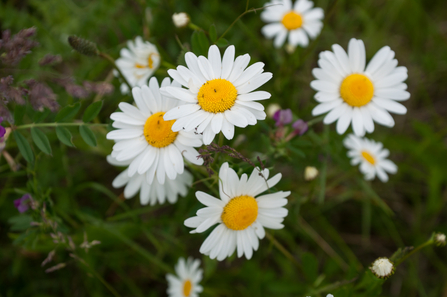
©Gemma de Gouveia
Oxeye Daisy
This giant white-and-yellow perennial daisy thrives in gardens, roadsides, parks and meadows. It’s an important source of pollen for many invertebrate species and, like most native flowers, thrives in areas which are not excessively mown.
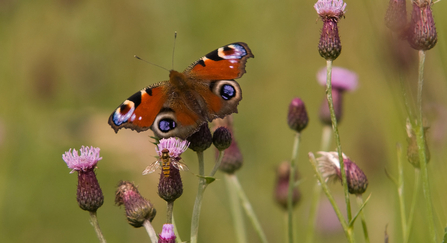
© Bob Coyle
Peacock butterfly
Formerly an extremely common species, this bright-red butterfly with big blue ‘eyes’ is still often seen in gardens but has become less prevalent due to the loss of wild areas in which to feed and breed.
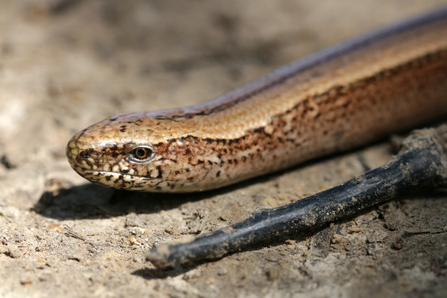
Jim Higham
Slow-worm
Not a worm, but the UK’s only legless lizard, this harmless reptile loves to hide in long grass and log piles, where it munches on garden pests like small slugs. Slow-worms need ‘messy’ areas to thrive, and suffer when gardens do not have any wild areas in which to hide.
SWT has produced a specially-designed app, Five2Find, which is easily downloadable to any smartphone, to help people record and identify these species and report their numbers and locations.
Participants can learn where and when to spot the five key species here, and then record their sightings by following the short video above.
The data on species sightings in Surrey will be fed to the Surrey Biodiversity Information Centre (SBIC), a vital body which enables conservationists to understand the changing distribution and abundance of native plants and animals and formulate conservation strategies for them.
SWT’s Community Programme Manager Claire Harris says:
“Unless more people learn to see, appreciate and protect the riches on their doorstep, we risk losing our natural heritage without even noticing - and the long-term consequences of nature’s decline could be catastrophic for all of us. Fortunately, learning about nature is both fun and free – and we hope that this project will open doors of discovery for Surrey residents of all ages and backgrounds. It could also help us build a more complete picture of where wildlife lives, how abundant it currently is and what we can all do to give it a helping hand.”
Over time, the information gathered through Surrey Species Searches will help improve, protect or connect the local green spaces that are most important for wildlife. Surrey Wildlife Trust works with local people and communities across the county to help them reap the benefits of learning about, creating, and caring for wild places – from window boxes and gardens to local parks, playgrounds and nature reserves.
Britain is one of the world’s most nature-depleted nations, and one-third of Surrey’s species are currently at risk or already lost. Surrey Wildlife Trust’s Save Surrey’s Nature campaign is aiming to raise £1 million to halt and reverse this pattern, so that everyone can enjoy the benefits provided by a healthy natural world.
Download the Surrey Species Search Five2Find app.
Confirmed sightings of any native species can also to be reported directly to SBIC via surreybic@surreywt.org.uk. Surrey Wildlife Trust hopes that the Surrey Species Search project will prompt many residents to report the wild flora and fauna they see around them.
